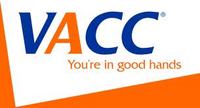VACC says Victorian Government assistance with MEC extension is vital for future Motor Shows
 |
SYDNEY – April 19, 2013:VACC has used its Victorian State Budget Issues paper to urge the Victorian Government to provide assistance with future Motor Shows. An owner of the Australian International Motor Show, in a joint venture partnership with the Federal Chamber of Automotive Industries, VACC has called for an extension and upgrade of the Melbourne Exhibition Centre (MEC) so that the vital Melbourne facility remains competitive with proposed plans for the New South Wales Exhibition Centre in Sydney and other similar venues in Asia.
“This year’s Motor Show may have been cancelled, but we are already working on a new business model for future Shows. We are making every effort to ensure Australia and Melbourne continues to have a Motor Show, but we’ll need Victorian Government assistance to do so. A good first step would be to extend and upgrade the MEC so we have a world class venue to attract world class exhibitors to a world class show,” VACC Executive Director, David Purchase, said.
VACC also called on the Victorian Treasurer, Michael O’Brien, to provide more assistance to small business in his Victorian State Budget, on 7 May 2013. VACC represents 5,300 small business members in the retail, service and repair sector of the automotive industry, many of which have endured significant industry restructuring and pressures, and subdued confidence and expectations.
VACC recommends the 2013-14 Victorian State Budget addresses the following small business issues:
Taxes and charges - the Victorian Government should schedule reductions in payroll taxes, land taxes, stamp duties and Worker’s Compensation premiums. These costs apply pressure to business activity and create cash flow demands. No new taxes or charges on business should be introduced.
Lower payroll tax - increase the threshold at which payroll tax becomes applicable to $1million and legislate for its eventual repeal.
Reduce land tax - land tax is calculated on the valuation of the land at its ultimate use and is not applied with consideration of its current use. Small business owners cannot survive if taxed on the potential use of the land rather than the reality of the current use.
Stamp duty on new cars - adds to the cost of vehicles and is a disincentive for car buyers. The current 5 per cent threshold level at $59,133 mimics the Commonwealth Luxury Car Tax and should not apply. VACC opposes the taxation of vehicles as luxury goods. If there is to be a tax, VACC recommends the 5 per cent threshold be raised to at least $100,000 in the short term and repealed in the long term.
WorkSafe Fund surpluses - current Government access to WorkSafe Fund surpluses infers employer paid premiums can be used like a tax. VACC believes WorkSafe programs should be maintained at current levels and Government should cease accessing WorkSafe Fund surpluses for other purposes.
Car Parking Levy - in Melbourne’s CBD, the levy has not reduced vehicle use but has increased parking costs. VACC suggests replacing the levy with a plan to manage traffic congestion which should include encouraging increase use of motorcycle and scooters.
Unlicensed motor car traders - VACC recommends more Budget support be provided to Consumer Affairs Victoria to specifically detect and prosecute unlicensed motor car traders. Motor car trading is heavily regulated in Victoria, but unlicensed traders continue to proliferate. Unlicensed traders compete unfairly with Licensed Motor Car Traders by avoiding taxes, charges and fees associated with legitimate trading and deprive the Government of revenue.
Small Business Commissioner - the Office of the Small Business Commissioner has been highly effective in helping small business, especially via dispute resolution. VACC calls on the Victorian Government to increase resources for the Office of the Small Business Commissioner to enable broader servicing to the small business community.
Office of Small Business Regulation - VACC believes an Office of Small Business Regulation, based on the US Office of the Small Business Advocate, should be established to complement the Small Business Commissioner’s activities by being able to investigate regulations that adversely affect small business growth and economic activity.


